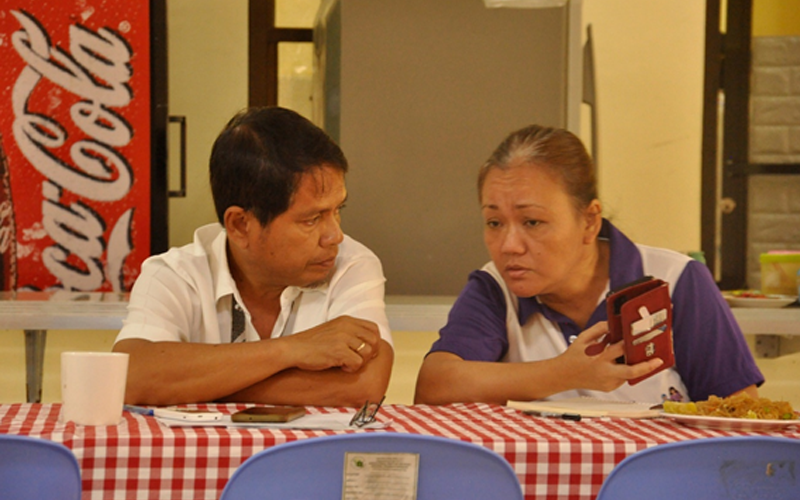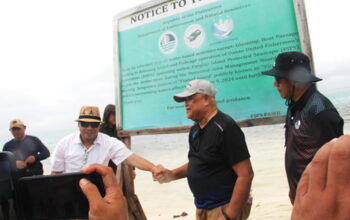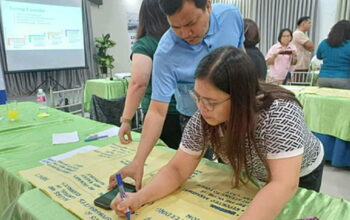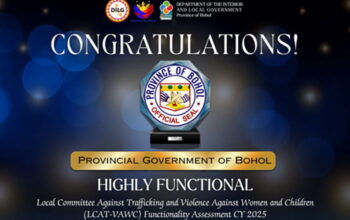
TAGBILARAN CITY, Bohol (PIA) – In the upcoming threat of a long dry spell expected to hit the region in August, the Department of Agriculture (DA) through the Agricultural Training Institute (DA) embarks on a radio based distance learning program to get to at least 2,500 rice farmers into climate smart agriculture and rice production, in July.
Using a tried and tested medium of the radio, the school on the air (SOA) for Smart Rice Agriculture (SRA) is the government’s response in mitigating the effects of the possible strong El Niño, which the country’s weather bureau forecasts to hit the country by August and lasts until the first quarter of 2024.
The idea of science based agricultural modernization found a strong foothold during DA Secretary William Dar’s term, who believed that modernization is propelled by technical innovations and scaling these cutting edge technologies to the critical mass of farmers especially in regions where the harvest yield is still below the 4 tons per hectare, and radio broadcasting apparently is by far, the most effective, explains Doris Isabel Racho, ATI Information Officer.
Set to be aired in rice producing regions, the SOA on SRA is expected to bring to the farmers’ doorsteps the standard curriculum in smart rice agriculture including the widespread awareness and understanding of modern climate-smart rice agriculture technologies and support services which are intended to increase harvest and income of rice farmers, she added.
In the past decades, farmers have seen considerable changes in climate that weather patterns have become indistinguishable that farmers have to change their cropping seasons to adapt, and aggravated by global warming has also brought in stronger weather disturbances damaging crops and devastating agriculture, adds agriculture extension workers who have brought newer technologies to farmers, but have yet to see the effects in the overall impact to food security.
As agriculture and even fisheries are highly dependent on specific climate conditions, understanding the over-all effect of climate change can possibly impact on the food production, that climate smart agriculture (CSA) has to be mainstreamed, DA information Officer Cheryl dela Victoria emphasized.
By CSA, it means one that sustainably increases productivity, helps strengthen resilience, reduces carbon emissions and helps achieve food security and development.
For this, the SOA will bring out the CSA practices in Weather Smart agriculture where farmers heed timely and user-friendly weather advisories; Water Smart agriculture where controlled irrigation uses alternate wet and dry irrigation, rainwater harvesting and community water management.
It also means Energy Smart Agriculture where solar energy is preferred choice, the adoption of biofuels and fuel efficient farm machines and engines are given premium.
As to pest control and management, the SOA would be adopting site specific nutrient management, integrated pest management and integrated nutrient management; carbon smart agriculture where there is a bias to agro forestry, minimum tillage and livestock management to reduce green-house gasses.
Over all these is Knowledge Smart Agriculture where farmer to farmer learning is encouraged, partnerships, collaborations and cooperation especially in market information systems and seed system sharing becomes a practice.
To attain this, the radio-based online learning program would be aired simultaneously while conducted by broadcasters provided with ready to be aired modular scripts, radio plugs and canned interviews provided by partner agencies like DA ATI, DOST PAG-ASA and this would be sustained based on the outcome assessment of the initial broadcasts.
To be implemented involving a coalition of private and public partners, the SOA would also involve enrolled rice farmers who would undergo pretest, listening to lessons, answering quizzes and examinations to assess gained knowledge and as an aid in the selection of outstanding graduates.
And then, there is a post test to help organizers determine the extent of imbued knowledge to decide on module modifications or program evaluation.
The SOA caps in a graduation which impresses n the importance of learners’ achievements when certificates of graduation are handed to those who complete the SOA course with attendance and participation, performance in examinations and quizzes, farm demonstrations and other requirements have to be satisfactorily accomplished. (PIA-7/Bohol)



